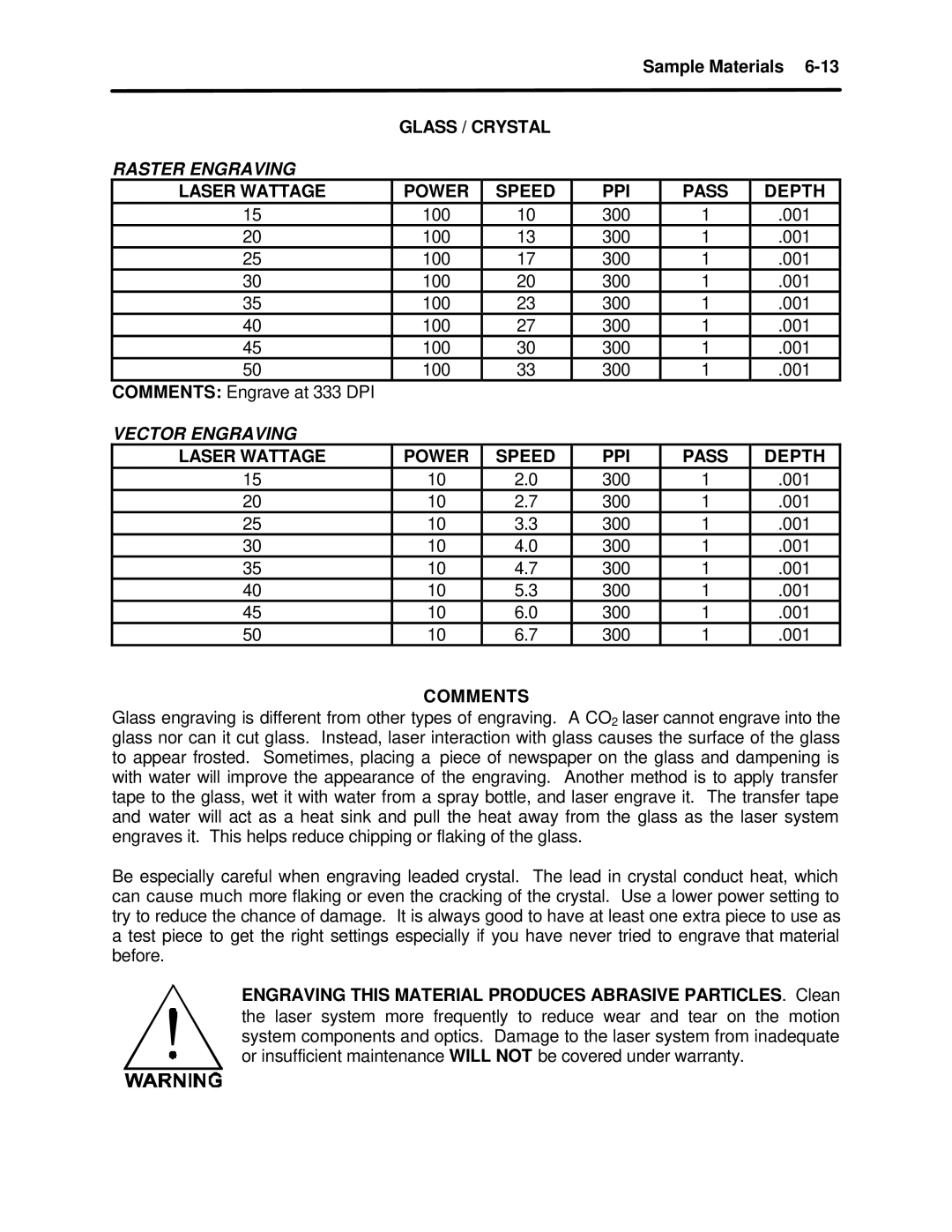
Sample Materials 6-13
GLASS / CRYSTAL
RASTER ENGRAVING
LASER WATTAGE | POWER | SPEED | PPI | PASS | DEPTH |
15 | 100 | 10 | 300 | 1 | .001 |
20 | 100 | 13 | 300 | 1 | .001 |
25 | 100 | 17 | 300 | 1 | .001 |
30 | 100 | 20 | 300 | 1 | .001 |
35 | 100 | 23 | 300 | 1 | .001 |
40 | 100 | 27 | 300 | 1 | .001 |
45 | 100 | 30 | 300 | 1 | .001 |
50 | 100 | 33 | 300 | 1 | .001 |
COMMENTS: Engrave at 333 DPI |
|
|
|
|
|
VECTOR ENGRAVING |
|
|
|
|
|
LASER WATTAGE | POWER | SPEED | PPI | PASS | DEPTH |
15 | 10 | 2.0 | 300 | 1 | .001 |
20 | 10 | 2.7 | 300 | 1 | .001 |
25 | 10 | 3.3 | 300 | 1 | .001 |
30 | 10 | 4.0 | 300 | 1 | .001 |
35 | 10 | 4.7 | 300 | 1 | .001 |
40 | 10 | 5.3 | 300 | 1 | .001 |
45 | 10 | 6.0 | 300 | 1 | .001 |
50 | 10 | 6.7 | 300 | 1 | .001 |
COMMENTS
Glass engraving is different from other types of engraving. A CO2 laser cannot engrave into the glass nor can it cut glass. Instead, laser interaction with glass causes the surface of the glass to appear frosted. Sometimes, placing a piece of newspaper on the glass and dampening is with water will improve the appearance of the engraving. Another method is to apply transfer tape to the glass, wet it with water from a spray bottle, and laser engrave it. The transfer tape and water will act as a heat sink and pull the heat away from the glass as the laser system engraves it. This helps reduce chipping or flaking of the glass.
Be especially careful when engraving leaded crystal. The lead in crystal conduct heat, which can cause much more flaking or even the cracking of the crystal. Use a lower power setting to try to reduce the chance of damage. It is always good to have at least one extra piece to use as a test piece to get the right settings especially if you have never tried to engrave that material before.
ENGRAVING THIS MATERIAL PRODUCES ABRASIVE PARTICLES. Clean the laser system more frequently to reduce wear and tear on the motion system components and optics. Damage to the laser system from inadequate or insufficient maintenance WILL NOT be covered under warranty.
